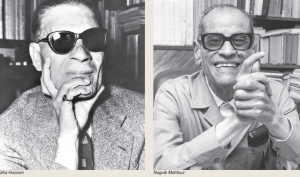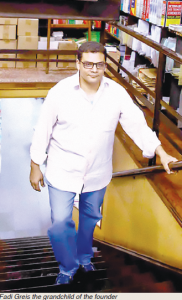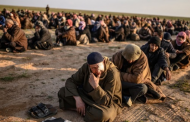From king Fouad to President ALSISI
The bookshop that tells most of Egypt’s history
– As it marks 89 years since its establishment, Cairo’s Anglo-Egyptian Bookshop finds itself struggling in a different world.
When it opened its doors in 1928, the bookshop was the first of its kind in the whole Arab region.
“This was the first bookshop in the region to import foreign books from England and other European countries,” said Fadi Emir Greis, a grandchild of the bookshop founder and now its owner. “Foreign culture was much in demand then.”
At the time, Egypt was occupied by the British, and the British expatriates living in the country, along with Egypt’s Anglophile cultural elite, wanted a bookstore to cater to their needs.
Anglo-Egyptian Bookshop founder Sobhi Greis had just finished high school when he decided to start this business but he saw a niche in the market. He started importing books from England and other European countries and quickly made his fortune.
Apart from wealth, Greis turned his bookshop into a mecca for Egypt’s and the Arab world’s most important cultural and political figures. His clients included Egyptian poet Ahmed Shawqi, Egyptian cultural renaissance figure Taha Hussein and Nobel Literature Laureate Naguib Mahfouz.Even the royal family dynasty and the then king Fouad the ruler of Egypt accustomed to drop by and buy books..

For years, Greis and his bookstore provided writers, poets and intellectuals with a window into the Western world.
“These were times when everything was different: The culture, the people and economic conditions, too,” Fadi Emir Greis said. “There was huge demand for English-language books that enabled my grandfather and my father after him to make a big name.”
Fadi Emir Greis inherited the bookshop from his grandfather and his father but not their fortunes. Demand for foreign-language books declined, just as demand for books in print in general has dropped.
Sitting in bookstore, surrounded by books — the Anglo-Egyptian Bookshop has approximately 40,000 in stock — Fadi Emir Greis said he eyes the future with concern.
When they took over, Fadi and his younger brother, Kareem, were keen to keep the place as is. The almost-century-old floor and ceiling of the bookshop are the same as their grandfather built them, the shelves are untouched.
The Anglo-Egyptian bookshop is divided into three levels, including a basement where thousands of important Arabic language books are kept. Foreign books in all fields can be found on the ground floor and the top floor of the bookshop is dedicated to meetings and study.
Linking the ground floor with the basement is a creaky ancient wooden staircase. The journey from the ground floor to the basement is like a journey back in time, between two different cultures or two different worlds.
The brothers said they were aware they were seeking to preserve a great legacy, although it is a less fortunate legacy than that enjoyed by their father and grandfather.
“This bookshop was the only destination for researchers, men of letters and booklovers throughout most of the 20th century,” Kareem Greis said. “But things are changing dramatically.”
The internet is killing the book industry and in Egypt, which suffers massive post-revolutionary economic hardships, few people are ready to scrap their basic needs to buy books. Most of the books can be pirated online, which is further suffocating bookselling as a business.

A decision by the Egyptian central bank to free the dollar and float the pound last year almost doubled the exchange rate of the US dollar and, consequently, the prices of imported books.
But the Greis brothers said they are not ready to stand idly by and watch the cultural empire built by their grandfather and father crumble. They are seeking ways to reinvent the Anglo-Egyptian Bookshop, including uploading books online and offering readers the chance to peruse their entire online back catalogue for a small fee.
They are beginning a new initiative to encourage people to read out-of-print books — reprinting editions for a new audience. In addition to this, a department offering home deliveries will seek to take advantage of the online phenomenon.
“The world is changing and we must change with it,” Fadi Emir Greis said. “We have inherited a precious centre of culture from our grandfather and father but it needs to be presented to the world in a new light or it can be forgotten forever.”
This bookshop, which was born in the same year of late president Mubarak,is still a landmark of Cairo even though it is not like before.. It eyewitnesses the demise of the last king Farouk,the 23th of july revolution in 1952,the death of Nasser and Sadat and the ousting of Mubarak ..Now ,udder ALSISI it hopes to restore much of its shinning past..








































admin in: How the Muslim Brotherhood betrayed Saudi Arabia?
Great article with insight ...
https://www.viagrapascherfr.com/achat-sildenafil-pfizer-tarif/ in: Cross-region cooperation between anti-terrorism agencies needed
Hello there, just became aware of your blog through Google, and found ...